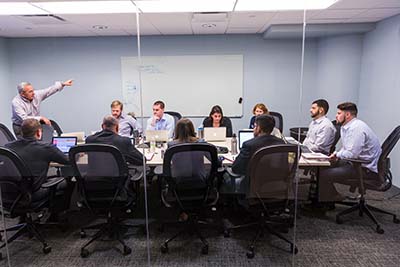Want Amazing E-Learning? Ask the Questions No One Else Does
- If e-learning content is weak or dated, even the best format cannot compensate
- E-learning must be user-centered, social, interactive and fun
- In an era of life-long learning, when many people have multiple careers, effectively teaching fundamental concepts is a vital task
The e-learning industry is expanding globally by leaps and bounds, with some estimates placing the market size at well over $70 billion in 2015. There are masters degrees and even doctoral degrees in e-learning instructional design available, and venture capital is pouring into startups and small e-learning technology shops. The value of e-learning in terms of cost savings, efficacy and impact is also well established. E-learning is booming, and almost everyone is trying to figure out how to get on board with the boom, or enhance what e-learning they already have.
 But for many people, it still is not clear what creates effective e-learning. We’ve seen the research showing that e-learning works, and that many smart people believe in it and adopt it, but when you start to dig into what makes for good e-learning, you primarily find a lot of graphics and charts about the content’s form. Here’s a typical smattering of advice: Make the learning user-centered, social, integrated, applied, interactive. Use graphics. Make it fun. Add gamification or badging. Integrate it into an HR incentives program. The list goes on and on.
But for many people, it still is not clear what creates effective e-learning. We’ve seen the research showing that e-learning works, and that many smart people believe in it and adopt it, but when you start to dig into what makes for good e-learning, you primarily find a lot of graphics and charts about the content’s form. Here’s a typical smattering of advice: Make the learning user-centered, social, integrated, applied, interactive. Use graphics. Make it fun. Add gamification or badging. Integrate it into an HR incentives program. The list goes on and on.
Somehow, amid these well-meaning conversations about how to standardize, measure and improve e-learning (i.e. improve the quality of form), the emphasis on quality of the substance – the true content – of the e-learning has been pushed aside. If e-learning content is weak or dated, even the best form cannot overcome this. The experience is akin to watching a movie with a terrible script and painful acting, held together only by some crazy CGI special effects and a fun soundtrack. It’s still a bad movie – just a bad movie with cool effects.
At SiriusDecisions, we strive to have great form in our e-learning, but we start with great content. Here are the three questions we constantly ask ourselves to make sure our e-learning stands out:
1. Is it really up-to-date? One of the difficulties that many educators encounter when creating e-learning is the reality that in a specialized economy, with its rapid evolutions in technology and processes, information ages quickly. Even seemingly established fields are being upended. For example, think about the impact of recent advances in genetic research: new information has upended much of what was taught even five years ago in biology, psychology, anthropology and archeology. In fields heavily influenced by technology – such as marketing and sales – those changes are even more rapid. As a result, it has never been more important to check on the timeliness of any e-learning you are looking to purchase or use.
2. Is it really best-in-class? This quality of the material is distinct from its timeliness. This is a issue that most people try not to touch at all. But what is the expertise of the people informing the course content, and how much effort are they putting in? In a global, virtual economy, we have a situation where formal degree programs – even advanced degree programs – do not always teach the specialized, functional skills that are needed. Take a look at an MBA curriculum. See any B2B content there? Yet the B2B e-commerce market size is about twice the size of the B2C market. Users looking to find truly high-quality information must conduct some due diligence on those who create and advise e-learning creation. Evidence of professional expertise and substantive experience in specific functional skill areas is important, but you should also ask how much those expert practitioners were involved in creating the e-learning.
3. Are the fundamentals insipid or inspiring? The basics should never be boring. In fact, they should be the opposite. The condescension towards entry-level concepts has got to go. In an era of life-long learning, where many people will have three to four distinct careers, teaching fundamental concepts well is the most important thing a company can do for itself and its people.
These are hard questions to ask, but think of this as a true quality control for any e-learning you consider buying!